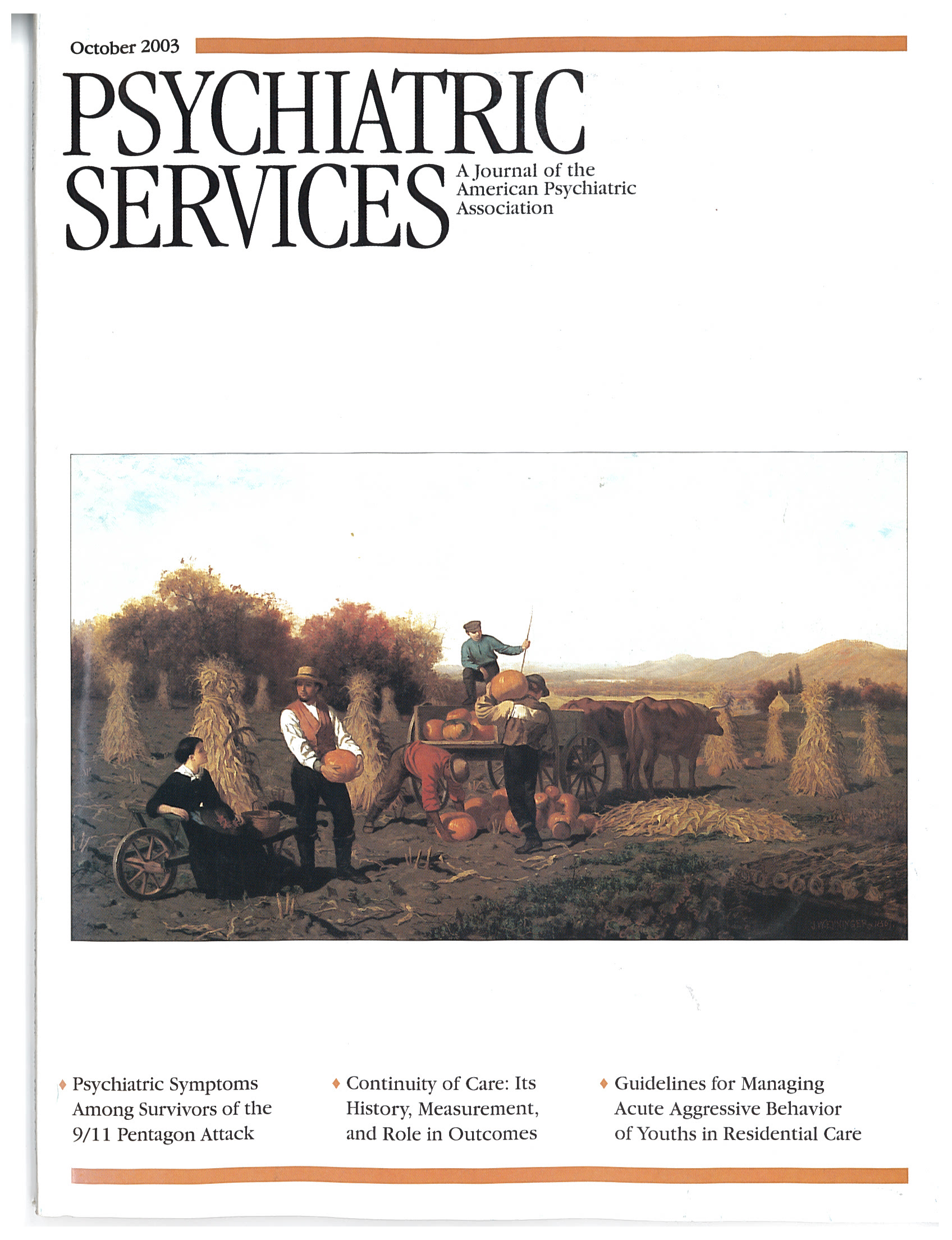The Bridge Program: A Model for Reaching Asian Americans
Although Asian Americans represent one of the fastest growing populations in the United States, they have the lowest use of mental health services. Asian Americans with mental illness are often severely ill or in crisis by the time they receive a psychiatric diagnosis. As a result, this patient population is more costly to treat, frequently requiring lengthy inpatient hospitalization.
In an attempt to address these salient mental health issues, the Charles B. Wang Community Health Center in New York City developed the Primary Care and Mental Health Services Bridge Program in 1997. Asian Americans generally have very little awareness of mental health issues, and having a mental illness and seeking psychiatric services are profoundly stigmatized. The stigma is typically heightened by Asian culture, which puts tremendous emphasis on familial identity and honor, often preventing persons with mental illness from referring themselves or family members to mental health services. Furthermore, there is a dearth of accessible, qualified bilingual Asian-American mental health professionals. And primary care providers, who address most of the medical needs in this population, are not equipped to provide mental health care for Asian-American patients.
The Bridge Program is designed to improve access by integrating mental health services in a primary care setting, by enhancing the skills of primary care providers in the identification and treatment of mental disorders commonly seen in primary care, and by providing community health education about mental health issues.
The program started by establishing contracts with two community health centers to share bilingual certified psychiatric social workers who were co-located part-time in the primary care centers. This arrangement enabled integrated staffing of mental health services in primary care and helped to smooth the interagency referral process. A board-certified bilingual psychiatrist was hired to manage psychotropic medication and oversee various clinical affairs and educational activities.
Typically, patients with psychiatric conditions are identified by primary care providers or through mandatory screening, which is usually performed by a case manager or nurse. After review by the primary care provider for medical clearance, patients who screen positive for a mental illness are referred to the on-site mental health clinician for further evaluation. Sometimes, interested primary care providers manage patients who have mental health problems on their own, with consultation from mental health clinicians about issues such as medication management and psychiatric treatment planning. Most of the time, identified patients are referred to the mental health clinicians for such services as management of psychotropic medications, individual psychotherapy, stress management, supportive therapy, and family therapy. The bilingual clinicians also explore patients' attitudes and beliefs about some culturally relevant alternative treatments, such as acupuncture, relaxation therapy, exercise, and behavior modification, and attempt to incorporate these beliefs into the treatment plan. Patients with chronic psychiatric illness, those with suicidal or homicidal ideation, and those who require long-term or intensive psychiatric treatment and monitoring are referred to an off-site specialty mental health facility.
The integrated service activity is supported by two other program components: training for primary care providers to detect, treat, and manage patients with mental disorders; and community education to increase awareness of mental health problems, reduce stigma, and promote mental health services that are available in the community. During the training provided by the Bridge Program's staff, primary care providers and nurses especially enjoyed learning how to use culturally acceptable and familiar words to describe psychiatric disorders, discuss treatment plans, and explain how mental health problems are linked to the brain and multiple organ systems. Radio programs and community forums that include testimony from consumers and their family members are among the most effective mechanisms for community education.
A few indicators of the Bridge Program's success include a continuing increase in the number of mental health patients identified through the program (from 77 in 1997 to 555 in 2002), overall patient ratings of the mental health treatment received as "excellent" or "good," an increasing number of mental health encounters involving primary care providers, dramatic improvement in the rate of successful referrals to off-site specialty treatment, and the accrual of revenue toward sustainable clinical services. During the past several years, the Bridge Program has been replicated in a number of Asian community-based organizations.
The program received the Bureau of Primary Health Care "Models That Work" award in 2000 and has been cited in the Surgeon General's report Special Supplement on Mental Health: Culture, Race, and Ethnicity as an example of bringing mental health care to the primary health care system to "strengthen the capacity of these providers to meet the demand for mental health services and to encourage the delivery of integrated primary health and mental health services that match the needs of the diverse communities they serve."
The authors are affiliated with the Charles B. Wang Community Health Center, 268 Canal Street, New York, New York 10013 (e-mail, [email protected]). Dr. Hongtu Chen is also with the department of psychiatry at Harvard Medical School in Boston. Dr. Kramer is also with the department of psychiatry at New York University School of Medicine in New York City.



